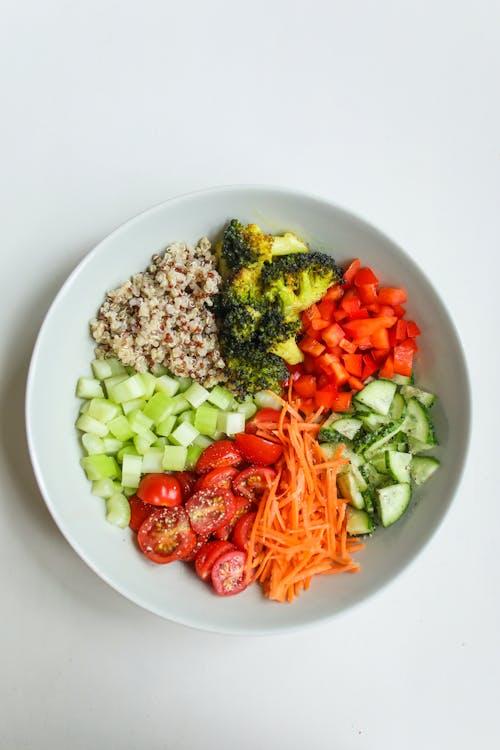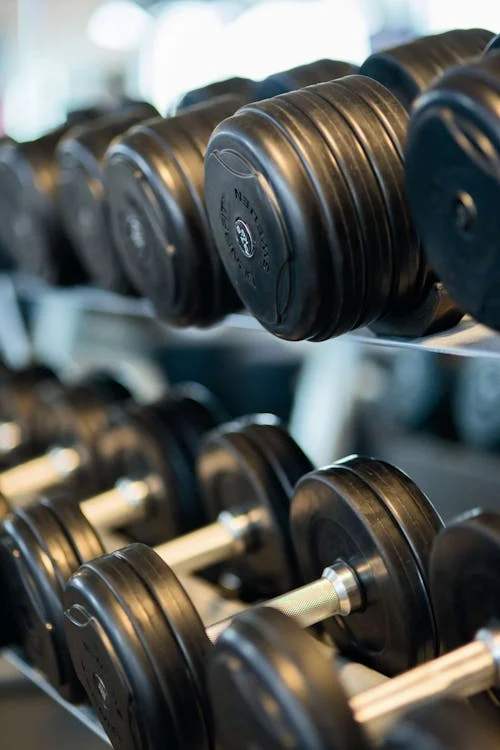
Testosterone is the driving force behind muscle growth, fat metabolism, and overall physical performance in men. While testosterone naturally decreases with age, there are safe and effective ways to boost your levels without resorting to synthetic hormones.
Below are five top tips to naturally increase your testosterone levels, complete with examples and explanations.
1. Use Herbs Wisely
Herbs have been used for centuries to enhance overall health, and some are particularly beneficial for boosting testosterone levels.
Ashwagandha is one of the most well-researched herbs in this category. This adaptogen has been shown to reduce stress, a major factor in lowering testosterone. A study published in the Journal of the International Society of Sports Nutrition found that men who took ashwagandha had significantly higher testosterone levels and greater muscle mass gains compared to those who did not. To incorporate ashwagandha into your routine, consider taking it as a supplement or adding ashwagandha powder to your smoothies.
Fenugreek is another powerful herb that can naturally increase testosterone. A study in the journal Phytotherapy Research found that men who took fenugreek supplements experienced a significant increase in both strength and testosterone levels after six weeks. You can find fenugreek in various forms, including capsules, powders, and even tea. Adding fenugreek to your diet can be as simple as sprinkling fenugreek powder on your food or taking it as a supplement.
Ginseng is also known for its testosterone-boosting properties. Studies have shown that ginseng can improve sperm quality and increase testosterone levels. It’s also known to enhance energy levels, making it a great addition to your pre-workout routine. Ginseng tea or supplements are widely available and can be a simple way to add this powerful herb to your daily regimen.

2. Take the Right Supplements
While a balanced diet is crucial, sometimes it’s difficult to get all the necessary nutrients from food alone. That’s where supplements come in. Certain vitamins and minerals are directly linked to testosterone production.
Zinc is one of the most important minerals for testosterone production. Zinc deficiency is common in athletes and bodybuilders, often due to intense training that depletes the body of this essential mineral. Research has shown that even a mild zinc deficiency can significantly lower testosterone levels. Zinc supplements are widely available and can be taken daily to ensure you’re getting enough of this crucial mineral. Foods high in zinc, such as oysters, beef, and pumpkin seeds, can also help you maintain adequate levels.
Vitamin D is another critical nutrient for testosterone production. Known as the “sunshine vitamin,” vitamin D is produced in the skin in response to sunlight. However, many people don’t get enough sun exposure, leading to vitamin D deficiency, which has been linked to low testosterone levels. A study published in the Journal of Clinical Endocrinology & Metabolism found that men with sufficient vitamin D levels had significantly higher testosterone levels than those who were deficient. To boost your vitamin D levels, spend more time in the sun, consume vitamin D-rich foods like fatty fish and fortified milk, or take a vitamin D supplement.
Magnesium is another mineral that supports healthy testosterone levels. It works by blocking a protein called sex hormone-binding globulin (SHBG), which binds to testosterone and makes it unavailable for use by the body. By reducing SHBG, magnesium helps increase the amount of free testosterone in your bloodstream. Magnesium-rich foods include spinach, almonds, and black beans, or you can take a magnesium supplement to ensure you’re getting enough.

3. Focus on Your Diet
Your diet plays a crucial role in regulating hormone levels, including testosterone. Eating the right foods can help maintain and even boost your testosterone levels naturally.
Healthy Fats: Fats are an essential part of hormone production. Diets too low in fat can lead to a decrease in testosterone levels. Incorporate healthy fats like those found in avocados, olive oil, and nuts into your diet. A study published in the American Journal of Clinical Nutrition found that men who consumed a diet high in monounsaturated fats had higher testosterone levels than those who ate a low-fat diet.
Protein: Protein is important not only for muscle repair but also for hormone regulation. Consuming sufficient protein can help maintain healthy testosterone levels by promoting fat loss and muscle growth. Lean meats, eggs, and fish are excellent sources of high-quality protein that can support testosterone production. For example, eggs are rich in both protein and healthy fats, making them a perfect addition to a testosterone-boosting diet.
Carbohydrates: While it’s important not to overdo it on carbs, especially refined sugars, complex carbohydrates are essential for energy and hormone production. Foods like sweet potatoes, brown rice, and quinoa provide a steady source of energy and support healthy testosterone levels. A study in the Journal of Applied Physiology found that men who consumed a higher carbohydrate diet had higher testosterone levels during intense physical activity compared to those on a low-carb diet.
Cruciferous Vegetables: Vegetables like broccoli, cauliflower, and Brussels sprouts contain a compound called indole-3-carbinol, which can help reduce estrogen levels and thus increase testosterone. These vegetables are also high in fiber and low in calories, making them great for overall health and weight management, which is also crucial for maintaining healthy testosterone levels.
4. Reduce Alcohol Intake
Alcohol consumption, especially in large quantities, can have a detrimental effect on your testosterone levels.
Alcohol affects the endocrine system, which regulates hormone production. It increases the conversion of testosterone into estrogen, the female sex hormone, and can also interfere with the production of luteinizing hormone (LH), which is essential for testosterone production. A study published in the Journal of Clinical Endocrinology & Metabolism found that even moderate alcohol consumption can cause a significant decrease in testosterone levels.
To protect your testosterone levels, it’s important to limit alcohol intake. Reducing your consumption to occasional drinks or cutting it out entirely can have a positive impact on your hormone balance. Opt for healthier alternatives like sparkling water or herbal teas when socializing or relaxing.

5. Prioritize Sleep
Sleep is often overlooked, but it’s one of the most important factors in maintaining healthy testosterone levels. During sleep, your body goes through several stages of recovery and hormone production, including testosterone.
Deep Sleep
The majority of your testosterone is produced during deep sleep, particularly during the REM (rapid eye movement) phase. A study in the Journal of the American Medical Association found that men who slept less than five hours per night had significantly lower testosterone levels than those who slept seven to eight hours. To maximize testosterone production, aim for 7-8 hours of quality sleep each night. Establish a regular sleep schedule, avoid caffeine in the afternoon, and create a sleep-friendly environment by keeping your bedroom cool, dark, and quiet.
Napping
If you have trouble getting enough sleep at night, short naps during the day can help mitigate the effects of sleep deprivation on testosterone levels. Even a 30-minute nap can help boost your overall energy and support hormone production.
Other Natural Ways to Boost Testosterone Levels
In addition to the top five tips mentioned above, there are several other natural strategies you can incorporate into your lifestyle to support healthy testosterone levels.

Strength Training
Exercise, particularly strength training, is one of the most effective ways to boost testosterone. When you engage in resistance exercises like weightlifting, your body responds by increasing testosterone production.
Compound Movements
Exercises that work multiple muscle groups simultaneously, such as squats, deadlifts, and bench presses, are particularly effective at boosting testosterone. These compound movements trigger the release of more testosterone compared to isolation exercises that focus on a single muscle group. Aim to include at least three to four strength training sessions per week in your routine, focusing on heavy weights and lower repetitions to maximize testosterone production.
High-Intensity Interval Training (HIIT)
HIIT involves short bursts of intense exercise followed by brief rest periods. This type of training has been shown to increase testosterone levels more effectively than steady-state cardio. Incorporate HIIT workouts into your routine a few times a week to boost your testosterone and improve your overall fitness.
Manage Stress
Chronic stress can have a devastating impact on testosterone levels. When you’re stressed, your body produces cortisol, a hormone that can inhibit testosterone production.

Mindfulness Practices
Techniques like meditation, deep breathing exercises, and yoga can help reduce stress and lower cortisol levels. Practicing mindfulness regularly can help keep your stress in check, allowing your body to produce adequate testosterone.
Balanced Lifestyle
Ensuring a good work-life balance, taking time for hobbies, and engaging in social activities can also help manage stress. By reducing stressors in your life, you can protect your testosterone levels and improve your overall well-being.
What to Avoid When Trying to Increase Testosterone
While there are many things you can do to boost testosterone, there are also several things you should avoid to prevent lowering your levels.
Over-Exercising
While exercise is beneficial for testosterone production, over-exercising can have the opposite effect. Excessive physical activity, particularly endurance exercise like long-distance running, can lead to a decrease in testosterone levels.
Rest and Recovery
It’s crucial to allow your body to rest and recover between workouts. Overtraining can lead to elevated cortisol levels and decreased testosterone. Ensure you’re getting enough rest days and consider incorporating active recovery practices like stretching, foam rolling, and light cardio to help your muscles recover without stressing your endocrine system.
Poor Diet Choices
Diet plays a huge role in hormone regulation, and poor dietary choices can lead to low testosterone levels.

High Sugar Intake
Diets high in sugar and refined carbohydrates can lead to insulin resistance, which is associated with lower testosterone levels. Reducing your intake of sugary foods and drinks can help maintain healthy testosterone levels. Focus on whole foods, including fruits, vegetables, lean proteins, and healthy fats, to support hormone production.
Soy Products
While not all soy products are harmful, excessive consumption of soy has been linked to decreased testosterone levels due to its phytoestrogen content. If you’re looking to boost your testosterone, it may be wise to limit your intake of soy products and opt for other protein sources like meat, fish, eggs, and legumes.
Lack of Sunlight
As mentioned earlier, vitamin D is crucial for testosterone production, and lack of sunlight can lead to deficiency.
Get Outside
Aim to spend at least 15-30 minutes outside in the sun each day, particularly during the midday when UVB rays are strongest. If you live in an area with limited sunlight, especially during the winter months, consider taking a vitamin D supplement to ensure you’re getting enough of this important nutrient.
Exposure to Environmental Toxins
Certain chemicals found in plastics, pesticides, and other environmental sources can disrupt hormone production and lower testosterone levels.
Testosterone is a vital hormone for men, particularly those involved in bodybuilding and strength training. By incorporating these natural strategies into your lifestyle, you can boost your testosterone levels safely and effectively.
Use herbs wisely, take the right supplements, focus on your diet, reduce alcohol intake, and prioritize sleep to optimize your testosterone production. Additionally, be mindful of other factors like stress management, avoiding over-exercising, and reducing exposure to environmental toxins.
With a holistic approach, you can enhance your physical performance, build muscle, and improve your overall health naturally.


